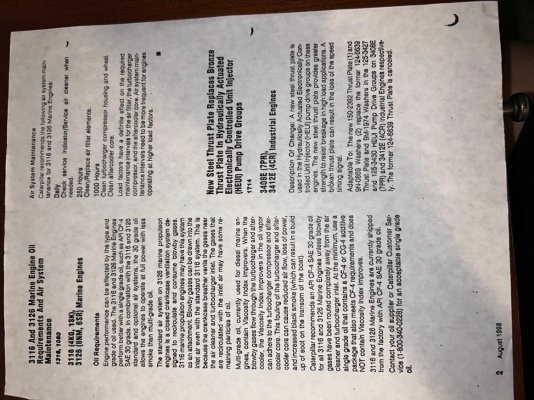I spent 26 years in the U.S. Navy in main propulsion engineering and on all of out equipment, we took quarterly oil samples and sent them off to the lab. Only once did we have to change engine oil in one of our diesel generators and that was due to salt water leaking in from the engine oil cooler. On my Duramax, I went over 10 years and 15,000 miles and changed it due to time, the Oil Sample I sent in said the oil was still good. I only have a little over 58,000 miles on the 2004 truck and only keep it to pull my utility trailer when I have to move my JD-1026R over to the dealer, only once since 2013 when I got the tractor. On my Motor Home with a Cummins 5.9 twelve valve, it gets changed every 4-5 years per the lab analysis recommendation. I send in a sample every fall just before the coach goes into the barn for the winter. All my other small Gas and Diesel engines are changed by the hour meter and that is every 200 hours per John Deere. 445 now has 1150+ hours since new 1994 and the 1026R has 370 since new in 2013. I have had any issues with any of my engines. Normal issues with the truck are not engine and transmission related, everything else has been a problem, brakes, instrument panel, Towing mirrors, Brake lines, fuel lines, fuel cooler etc. First and last GM product I will ever own. The Cummins and Allison in the Motor home has been flawless and the John Deere's are the best so far as I can see. A lab report is the only way to go if you have more than 5-6 quarts of oil. The nice thing with a boat is the engine is normally worked for quite a while at temperature and not like a car used for only short trips where the engine never gets up to temperature.


